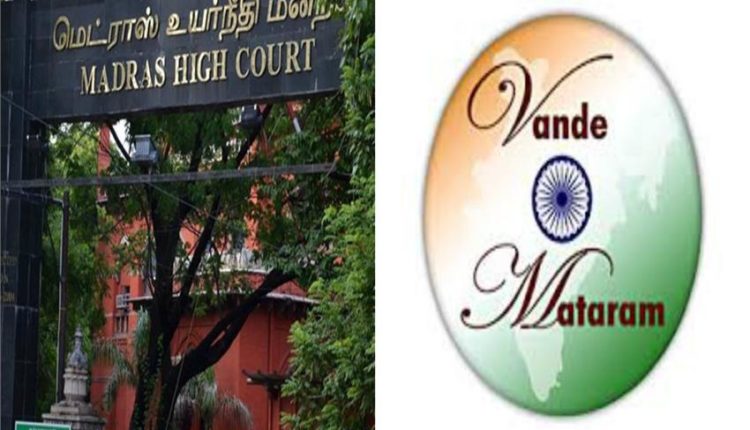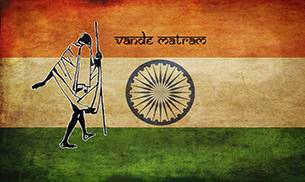VANDE MATARAM : Our National Song Will be Translated Into TAMIL said Madras Govt
Schools must be made to sing the National Song in any event once every week, while it must be sung in workplaces once per month.
Private and government schools in the state ought to guarantee that their students sing the national song no less than twice a week preferably on Monday and Friday, Justice M V Muralidharan said in the request.
Noticing that the tune can likewise be played in other government and private foundations at any rate once in a month, the judge stated, “If people feel it is difficult to sing the song in Bengali or in Sanskrit, steps can be taken to translate the song in Tamil.”
“Vande Mataram is of Sanskrit origin, and written in Bengali which is ought to be sung in every school and college,” Justice M.V Muralidharan as saying. If any person/organisation has difficulty in singing or playing the song, they shall not be compelled or forced to sing it, provided there are valid reasons for not doing so, the judge ruled.
“If people feel it difficult to sing the song in Bengali or in Sanskrit, steps can be taken to translate the song in Tamil,” the judge said. The judge said, “the youth of this country are the future of tomorrow and the court hopes and trusts that this order shall be taken in the right spirit and also implemented in letter and spirit by the citizenry of this great nation.”
The Madras High Court’s order is not the first time that the judiciary in the country has asked for overt displays of patriotism. In November 2016, the Supreme Court had ordered that the National Anthem must be played in public theaters across the country before a movie, minus any dramatization. It had also ordered that the National Flag be shown on screen when the anthem is played.
At the point when the issue initially came up on July 7, the petitioner’s counsel had presented that Bankim Chandra Chatterjee composed the national melody in both Bengali and Sanskrit.
The additional government pleader, then again, had contended that it was composed just in Sanskrit and was later translated into Bengali. The petitioner had fought that in all the books he had considered, Bengali was specified as the primary dialect in which the national song was composed.
Following this, the judge had guided the AG to appear before him and inform the court of the right answer, to settle the argument about the linguistic origin of the song raised by the BEd graduate.
“People must feel this is my country and this is my motherland,” the bench had said. “At the root of protocol for National Anthem, is respect for national identity, integrity and constitutional patriotism,” it had added.



